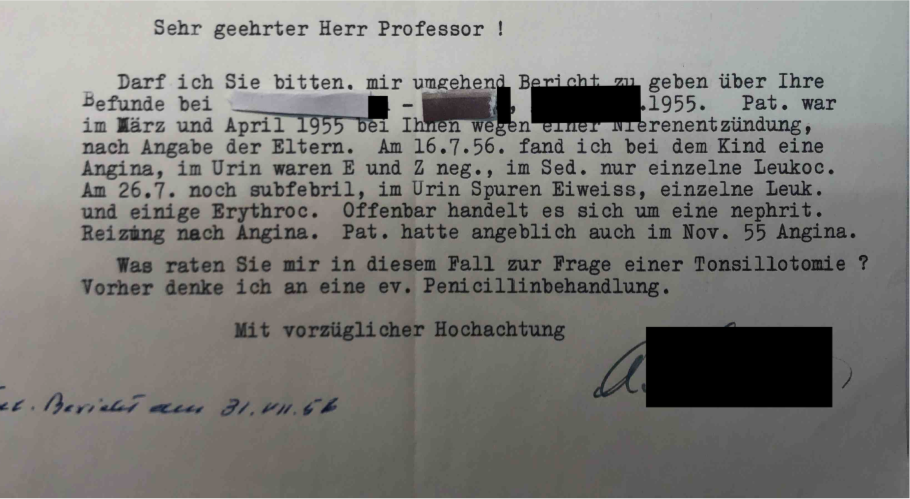Martina King
Professor
Öffentliches Thema "Literatur und Medizin" Ko-Her...
PER 17 - 115
+41 26 300 8672
We are a team of literary scholars and historians who aim to unite our disciplines with the goal of contributing to a better understanding of medicine. From our humanities-informed view, we believe that there are two ways of seeing it; firstly, medicine is a complex semiotic system, secondly it is also a series of cultural practices in science and communication which can only be understood through their respective contexts. While we apply both perspectives to our teaching and to our research, there are important differences in how we apply them.
Our teaching program – the ‘Fribourg model’ – is unique in Europe: exclusively designed for medical students, it runs across the whole BA- and MA curriculum with obligatory courses in medical history, ethics, anthropology, literary studies etc. The aim is to deepen our students understanding of contemporary medicine as a complex system; therefore, the program focuses on the cultural and intellectual history of medicine, including medicines’ various agents, discursive rules, spaces and their representations in media. In doing so, we are guided by the principles of the applied humanities, that is to say humanities which serve a purpose beyond and outside of themselves.
Our research, in contrast, is defined primarily through the analysis of literary and historical sources. It concentrates on the interface of the two disciplines that our team represents: Literary Studies and the History of Medicine. As a result, our research is characterized far more by the reflexive and interpretive dimensions of medical humanities than by the widespread critical, normative and activist impulses. Our focus lies on the cultural development of medicine and its practices, spaces, metaphors, ideas and knowledge since the growing medicalization of society in the early 19th century. Research questions include topics as diverse as the invention of the ‘sick child’ in 19th century periodicals and the introduction of smallpox vaccination, the literary history of obesity and the history of pharmaceuticals. They reach from the fictional prose of Weimar Republic (examined through the lens of either Disability studies or Spatial studies) to ‘illness life writing’ in contemporary literature, and finally to the ‘clinical discharge report’; this is an unexplored genre of medical communication that requires a combined, historical and epistemological approach.
Situated between research and teaching lies our academic and public engagement for the subject of Long Covid: it has to be seen as a health disaster since an estimated 3-5% of all people worldwide are affected (WHO). However, Long Covid is widely ignored, trivialized or instrumentalized by media and politics for their own purposes, especially in the Global North. This causes social tension and polarization – between sufferers and physicians, bureaucratic institutions and sufferers, health experts and insurance companies, and within society generally. It is our aim here to push back against polarization and argue against current prejudices determining this debate by a more balanced, rational discourse about Long Covid.


Images download from wellcomecollection.org, the free museum and library for the incurably curious
Professor
Öffentliches Thema "Literatur und Medizin" Ko-Her...
PER 17 - 115
+41 26 300 8672